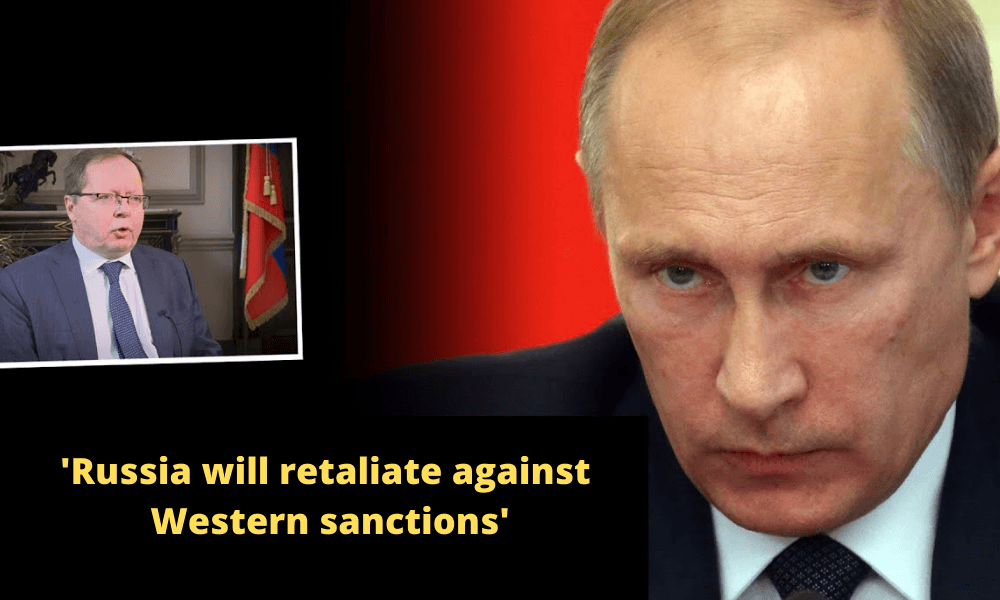Governments aren't alone in turning the screws on the Russian economy. Dozens of major multinational companies are doing the same.
A growing number of businesses are choosing to shut down their operations in Russia -- even if they aren't required to. Companies in multiple industries are bowing out of Russia, from Apple (AAPL) to Ikea to ExxonMobil (XOM), to General Motors (GM).
The companies say they are concerned about Russia's invasion of Ukraine, which has sparked widespread outrage across the United States and many European countries. Whether they're pulling out to comply with government sanctions isn't always clear. What is certain is that there are plenty of business reasons to shy away from Russia.
First and foremost: uncertainty. Investing money and selling goods for which the companies would be paid with a severely devalued Russian ruble, is a bad business decision. Why send a car or a smartphone to Russia when there is strong demand and pricing for the product in western markets?
Sanctions in the Russian banking sector might make it difficult to get compensated for some of those sales. And the restrictions Russia is putting on efforts to remove capital from the country, which could mean firms couldn't take out profits they earned in Russia.
"Businesses are asking themselves, 'Do I want to continue with something where I don't know if a contract I sign today can be executed weeks or months in the future,'" said Josh Lipsky, director of the GeoEconomics Center at the Atlantic Council, an international think tank. "The overall distress in the Russian financial system makes it too uncertain. Businesses hate uncertainty. This is uncertainty on steroids."
Still, Lipsky said, the large number of businesses pulling out of Russia is unusual, even for a crisis like this.
| Revealed In 2022 What indicators do professional traders use? |
"Generally, if there are opportunities to make money, they'll continue to invest in a market," he said. "But there's a consensus that it's not appropriate to be selling these products. That's an interesting dynamic I haven't seen before."
Even the Kremlin is acknowledging that the businesses actions of companies across the globe are creating an economic crisis for its economy.
"Russia's economy is experiencing serious blows," Kremlin spokesman Dmitry Peskov said in a call with foreign journalists. Russian Prime Minister Mikhail Mishustin was quoted in state news agencies TASS and RIA on Tuesday as saying the Russian government is looking at what steps it can take to stop Western businesses from pulling capital out of Russia.
One factor that's making it easier for businesses to pull the plug on Russian operations: it isn't a major global economic power. Russia's gross domestic product is about 25% smaller than Italy and more than 20% smaller than Canada, nations with a fraction of its population, according to the International Monetary Fund.
It is basically a provider of energy and other commodities -- wheat, lumber, and a variety of metals, such as aluminum, most of which are available elsewhere.
"There are alternatives," said Lipsky. "Companies are able to find those other markets and trading partners and meet all those fiduciary requirements to their shareholders. They've made the decision that Russia is not worth the risk."
More Russian Issue Here
The Russian Rouble Has Hit A New Low As A Result Of The Uproar Over Ukraine
Long Lineups Of Ukrainian Migrants At The Polish Border Were Described As "Hell
Russia Has Barred British Airlines From Flying In Russian Airspace
The aversion to risk is clear in energy trading. Sanctions by numerous western countries have so far exempted Russia's oil sector, in hopes of preventing shortages and price spikes in global energy markets.
But much of the Russian oil being offered for sale is going unsold, despite steep discounts. Traders are uncertain whether any deals they make for Russian oils can be closed given the heavy sanctions on Russian banks.
Finding oil tankers to call on Russian ports has been difficult -- as have insurance companies willing to insure the ships and shipments. All this has created what oil analyst Andy Lipow of Lipow Oil characterized as a "de facto ban" on Russian oil.
Source: CNN


Comments
Post a Comment